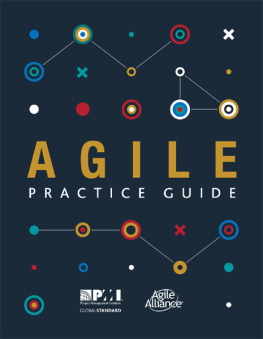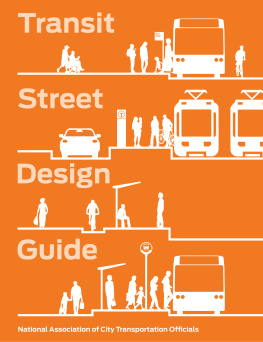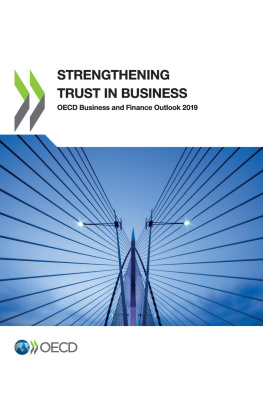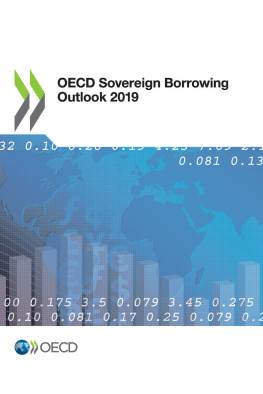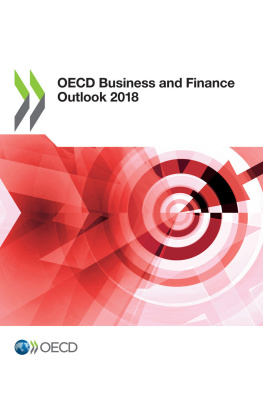coll. - OECD digital economy outlook 2017.
Here you can read online coll. - OECD digital economy outlook 2017. full text of the book (entire story) in english for free. Download pdf and epub, get meaning, cover and reviews about this ebook. City: Paris, year: 2017, publisher: OECD Publishing, genre: Politics. Description of the work, (preface) as well as reviews are available. Best literature library LitArk.com created for fans of good reading and offers a wide selection of genres:
Romance novel
Science fiction
Adventure
Detective
Science
History
Home and family
Prose
Art
Politics
Computer
Non-fiction
Religion
Business
Children
Humor
Choose a favorite category and find really read worthwhile books. Enjoy immersion in the world of imagination, feel the emotions of the characters or learn something new for yourself, make an fascinating discovery.

OECD digital economy outlook 2017.: summary, description and annotation
We offer to read an annotation, description, summary or preface (depends on what the author of the book "OECD digital economy outlook 2017." wrote himself). If you haven't found the necessary information about the book — write in the comments, we will try to find it.
coll.: author's other books
Who wrote OECD digital economy outlook 2017.? Find out the surname, the name of the author of the book and a list of all author's works by series.
OECD digital economy outlook 2017. — read online for free the complete book (whole text) full work
Below is the text of the book, divided by pages. System saving the place of the last page read, allows you to conveniently read the book "OECD digital economy outlook 2017." online for free, without having to search again every time where you left off. Put a bookmark, and you can go to the page where you finished reading at any time.
Font size:
Interval:
Bookmark:
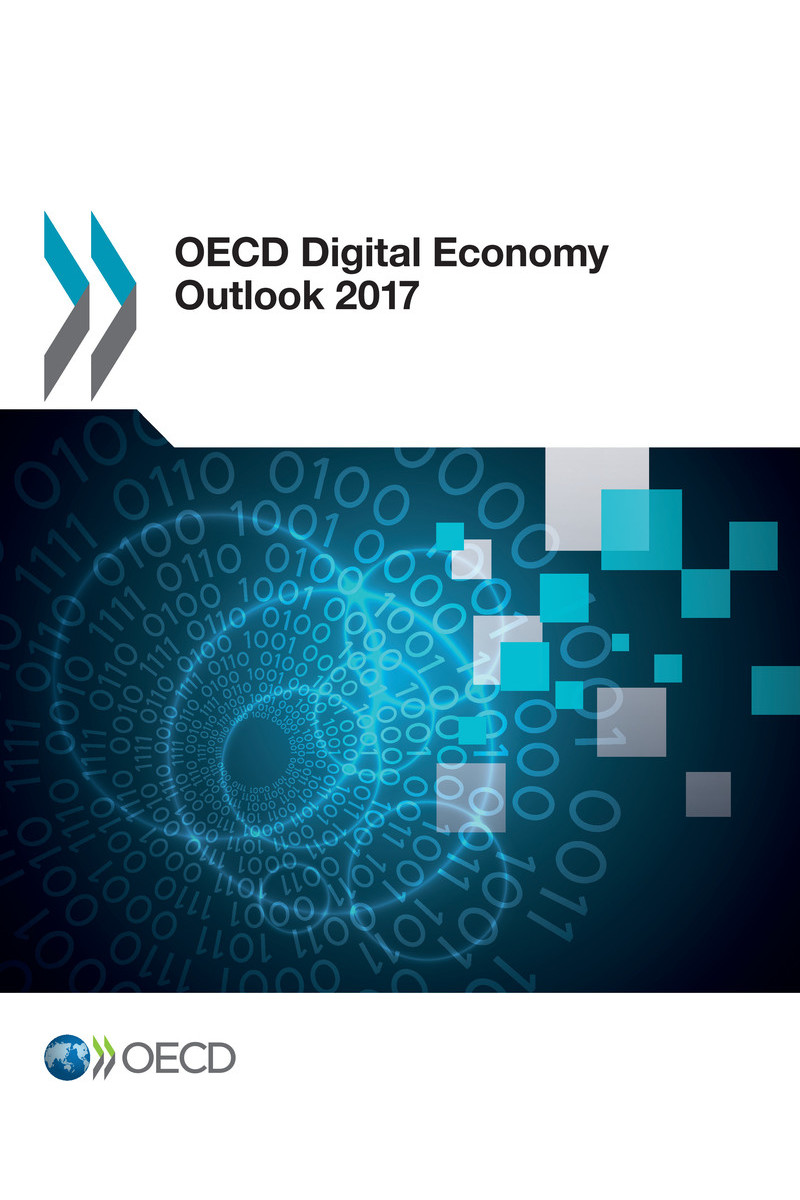
Flicitations et merci davoir tlcharg lun de nos tout nouveaux ePub en version bta.
Nous exprimentons ce nouveau format pour nos publications. En effet, mme si lePub est formidable pour des livres composs de texte linaire, le lecteur peut tre confront quelques dysfonctionnements avec les publications comportant des tableaux et des graphiques tout dpend du type de support de lecture que vous utilisez.
Afin de profiter dune exprience de lecture optimale, nous vous recommandons :
- Dutiliser la dernire version du systme dexploitation de votre support de lecture.
- De lire en orientation portrait.
- De rduire la taille de caractres si les tableaux en grand format sont difficiles lire.
Comme ce format est encore en version bta, nous aimerions recevoir vos impressions et remarques sur votre exprience de lecture, bonne ou autre, pour que nous puissions lamliorer lavenir. Dans votre message, merci de bien vouloir nous indiquer prcisment quel appareil et quel systme dexploitation vous avez utilis ainsi que le titre de la publication concerne. Vous pouvez adresser vos remarques ladresse suivante :
Merci !
Congratulations and thank-you for downloading one of our brand-new ePub-in-beta editions.
We're experimenting with this new format and, while ePub is fantastic for books with linear text, for books with charts, tables and graphs weve found some things may not work perfectly it depends on the device youre using.
So, for an optimal reading experience, we recommend:
- Using the latest version of your devices operating system.
- Reading in portrait mode.
- If large tables are tricky to read, try reducing the text size.
As this is an ePub-in-beta edition, we would be glad to receive feedback on your reading experience, good or otherwise, so we can improve for the future. When writing, please let us know which device/operating system you were using and the title of the publication. Write to:
Thank you!
OECD (2017), OECD Digital Economy Outlook 2017, OECD Publishing, Paris, http://dx.doi.org/10.1787/9789264276284-en.

The biennial OECD Digital Economy Outlook examines and documents evolutions and emerging opportunities and challenges in the digital economy. It highlights how OECD countries and partner economies are taking advantage of information and communication technologies (ICTs) and the Internet to meet their public policy objectives. Through comparative evidence, it informs policy makers of regulatory practices and policy options to help maximise the potential of the digital economy as a driver for innovation and inclusive growth. This second edition of the OECD Digital Economy Outlook provides a holistic overview of converging trends, policy developments and data on both the supply and demand sides of the digital economy, and illustrates how the digital transformation is affecting economies and societies.
The OECD Digital Economy Outlook 2017 has been prepared by the OECD Secretariat under the guidance of the OECD Committee on Digital Economy Policy (CDEP), chaired by Wonki Min (Korea). It has benefited from the input of delegates to the Committee and its Working Parties on Communications Infrastructure Services Policy (CISP), on Measurement and Analysis of the Digital Economy (MADE), and on Security and Privacy in the Digital Economy (SPDE). A large part of its content builds on the responses by OECD countries and partner economies to the 2016 OECD Digital Economy Outlook Policy Questionnaire.
The OECD Digital Economy Outlook 2017 was prepared by the Division on Digital Economy Policy in the OECD Directorate for Science, Technology and Innovation. It was produced under the direction/co-ordination of David Gierten, with assistance by Cristina Serra Vallejo. Authors include, by alphabetical order, Laurent Bernat, Frederic Bourassa, Anne Carblanc, Lauren Crean, Michael Donohue, Marie-Lou Dupont, David Gierten, Gal Hernandez, Bong Soo Keum, Elif Koksal-Oudot, Molly Lesher, Pierre Montagnier, Sam Paltridge, Karine Perset, Lorrayne Porciuncula, Giorgio Presidente, Christian Reimsbach-Kounatze, Elettra Ronchi, Carthage Smith, Cristina Serra Vallejo, Vincenzo Spiezia, Jan Tscheke, Verena Weber, Jeremy West and Yuki Yokoromi. External authors for are Primavera De Filippi, Cyrus Hodes and Nicolas Miailhe. Editorial work was undertaken by Jennifer Allain, Janine Treves, Angela Gosmann and by the OECD Public Affairs and Communications Directorate. Sarah Ferguson and Mara Castao provided assistance with formatting.
Finally, the data and assistance provided by Airbnb, Akamai, General Motors, Neftcraft, and Teligen, a division of Strategy Analytics Ltc., are gratefully acknowledged, as is the assistance of other colleagues in the OECD who have provided data for the analysis.
The OECD Digital Economy Outlook 2017 has been declassified by the OECD Committee on Digital Economy Policy (CDEP) on 27 July 2017 by written procedure and prepared for publication by the OECD Secretariat.
With its potential to galvanise economies, digital transformation is now high on the global agenda. OECD countries have set their objectives at the 2016 Cancn Ministerial on the Digital Economy. To maximise the benefits of digital transformation for innovation, growth and social prosperity, they are focusing efforts on the policy implications of the digital transformation, improving measurement, and developing an integrated policy framework for a whole-of-government approach. Despite good progress in the implementation of national digital strategies (NDSs) across the OECD co-ordination remains a major challenge. Only few countries have charged a high-level official or body dedicated to digital affairs with the co-ordination of their NDS.
Font size:
Interval:
Bookmark:
Similar books «OECD digital economy outlook 2017.»
Look at similar books to OECD digital economy outlook 2017.. We have selected literature similar in name and meaning in the hope of providing readers with more options to find new, interesting, not yet read works.
Discussion, reviews of the book OECD digital economy outlook 2017. and just readers' own opinions. Leave your comments, write what you think about the work, its meaning or the main characters. Specify what exactly you liked and what you didn't like, and why you think so.



